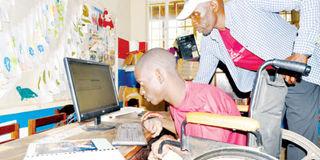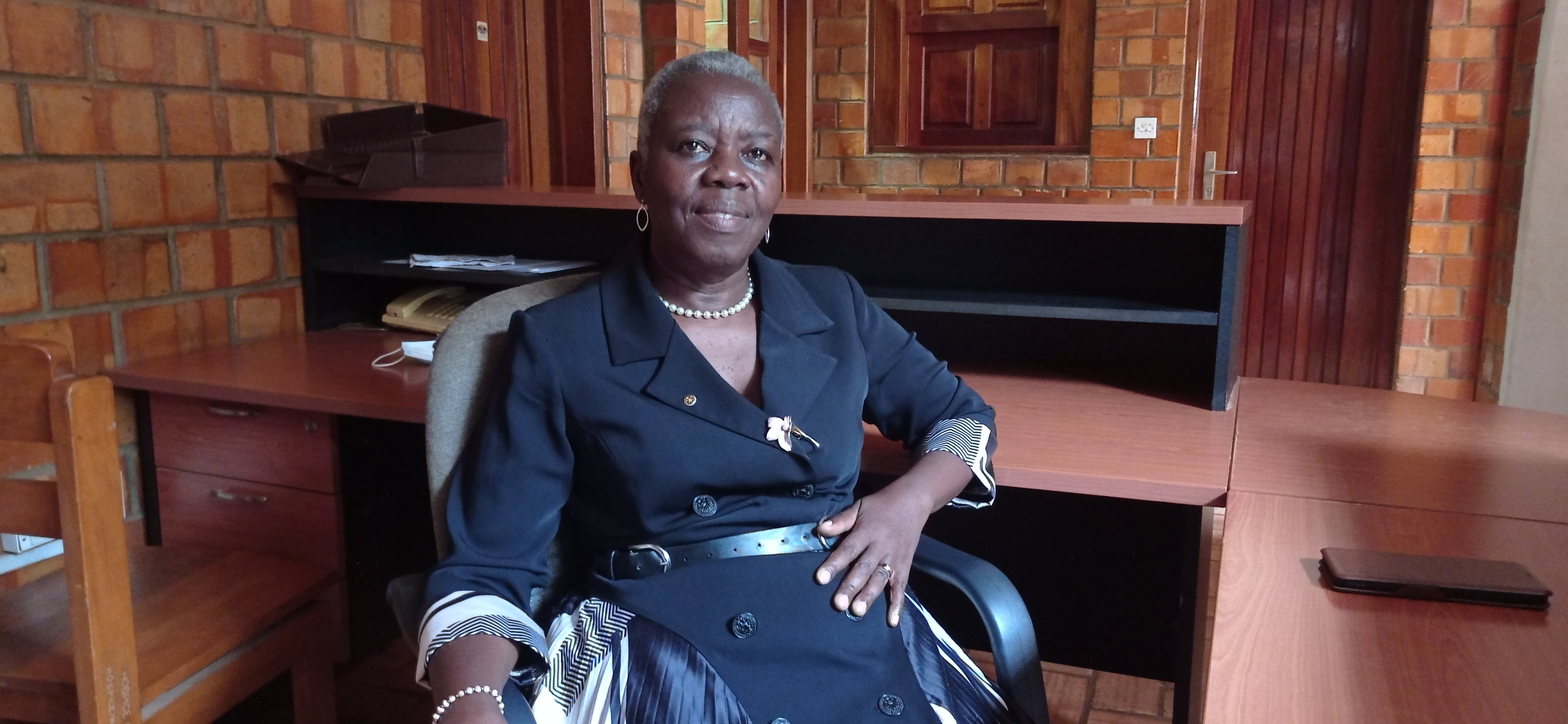Prime
Concern as learners with disabilities perform poorly again

A child with special needs learns computer in Kampala. Special Needs students post better UCE results 2022. PHOTO | FILE
What you need to know:
- The organisation said while the number of students who registered for the 2023 Uganda Certificate of Education examinations increased, the results are still wanting.
The National Union of the Disabled Persons of Uganda (Nudipu) wants the government to conduct investigations to unearth the root causes of consistent failures registered by candidates with disabilities.
The organisation said while the number of students who registered for the 2023 Uganda Certificate of Education examinations increased, the results are still wanting.
“Nudipu notes that although there was improvement in performance, the performance of learners with hearing impairment are still very low, while others did not sit for the examinations; this is our concern,” Ms Esther Kyozira, the chief executive officer of Nudipu, said on Friday.
She added: “Nudipu is concerned that some candidates with disabilities, who were registered to sit Primary Leaving Examination (PLE), did not show up.”
According to the Uganda National Examinations Board (Uneb), 809 candidates with special needs sat for UCE examinations in 2023. This represents a 12.2 percent increase seeing as 721 candidates wrote their UCE examinations in 2022. This was disclosed by Mr Dan Odongo, the executive director of Uneb, during the release of the 2023 UCE results last week.
Ms Kyozira disclosed that Nudipu has noted that very few learners with disabilities transit to secondary schools and very few sit their UCE examinations after successfully writing their PLE examinations.
Figures from Uneb indicate that the number of candidates with disabilities and special learning needs who registered for PLE in 2022 was 2,436. This increased to 2,652 in 2023. However, the number of ungraded learners for 2023 is alarming. Of the 2,652 candidates who sat for PLE, 208 were ungraded. Of these 119 are deaf, 81 are blind and eight are dyslexic.
“Nudipu regrets to note that 46 candidates with disabilities who registered to sit their PLE examinations in 2023 did not show up. Nudipu needs to know the reason for these learners’ absence,” Ms Kyozira said.
Ms Dianah Leah Seera, the programme officer at Nudipu, said government should expedite the passing of the National Inclusive Education Policy. She explained that the policy would support inclusive learning and guide schools on how to handle learners with disabilities.
“Additionally, there is a need to improve in-service teacher training curriculum to give teachers knowledge and skills to support learners with disabilities and other learning special needs,” she said.
According to Nudipu, the government should provide learning and teaching materials in the schools to support the education of learners with disabilities.
“We need Perkins Braillers, braille paper, sign language dictionaries and charts, sign language, captioners, sign language interpreters, braille instructors,” said Mr Martin Ssennoga, the Nudipu programme manager.
He added: “We need drugs for learners with seizures and epilepsy, sunscreen for the albinos, wash facilities and pampers for learners with hydrocephalus.”
Mr Ssennoga also said supporting continuous teacher capacity development to enable them deliver equitable education to learners with disabilities is needed.
“We request the government to provide boarding facilities for learners who cannot easily commute from their homes to school to encourage their retention and enrolment,” he said.




